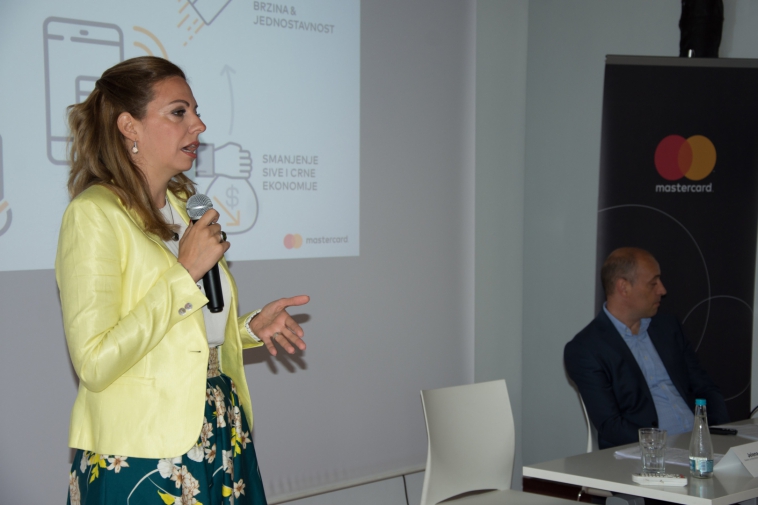
"Plastic" top choice for bills over 30 BAM
Debit and credit cards are a steady part of everyday shopping activities of BiH consumers with 89% of them using cards at least once a week and 1 in 3 respondents dipping and tapping their plastic every day – the new Mastercard MasterIndex study* has revealed.
Debit cards are the most commonly used product, as said by 53.6% of respondents, which is 7.6% more than in 2017. The number of those who use exclusively credit cards reduced from 13% to 5.7%, while 36.6% of people combine the benefits of debit and credit cards (similar to last year’s 35%).
Debit cards, as a convenient substitute for cash in everyday activities, are mostly used for buying food (47.4%), at gas stations (33.4%) and for buying clothes (28.7%). Although they are used at ATMs and bank counters by 40.9% of respondents, this number is down from 47% last year, which may be an indication that consumers are more inclined to substitute cash withdrawals and cash handling with more streamlined electronic payments in day-to-day situations.
On the other hand, credit cards as perceived as a means of obtaining additional funds or extending the repayment period, which is a good model of financial behaviour, so BiH citizens primarily use credit cards for buying furniture and appliances – 43.8%, and this is a 15.8% increase compared to the last year. This type of cards is also used for buying clothes (29.7%) and petrol (26.7%), and a particularly positive indicator of financial literacy is the fact that ATM usage of credit cards further declined to 3.4% from 8% in 2017.
“This year’s MasterIndex results underscore citizens’ further embracing practicality, simplicity and speed of electronic payments which is why we are seeing higher indicators for cashless development. The best illustrator is the fact that as many as 80% of respondents named payment cards as their top choice for paying amounts over 30 BAM, compared to 15% who reach for cash,” Amir Trokić, Account Manager for Bosnia and Herzegovina, Mastercard, commented and added: “It is the entire payment industry’s and institutional sector’s task not only to ensure that citizens get the safe and convenient payment experience they are accustomed to at as many locations as possible, but also to bring on more innovative ones, in line with the modern consumers’ actual needs.”
When choosing the card that they will use, BiH consumers look into several factors such as low rates and fees (top criteria for 36.6% of respondents), extra features of the card such as deferred payments or complementary insurance policies (28.9%) and good reputation of the issuing bank (27.3%), but there are also 15.4% of respondents who said that they did not choose their card, but it came with their bank account.
MasterIndex BiH has also pointed out that money refund is the preferred banking incentive that would prompt more frequent card usage (39.9%), followed by discounts at selected merchants (33.6%) and prizes (23.8%). When asked at which locations they would like to obtain discounts for card payments, a third of respondents named state institutions, utility companies and couriers, 27.3% said FMCG locations such as supermarkets and drugstores, while 26.9% would appreciate discounts on medical services.
Finally, the study highlighted that state and municipal institutions are recognized as locations where consumers would like to use their cards, but it is currently not possible by as many as 40%. Rounding up the top three non-accepting locations with high potential for card usage are taxi vehicles (20.7%) and open markets (16.6%).
